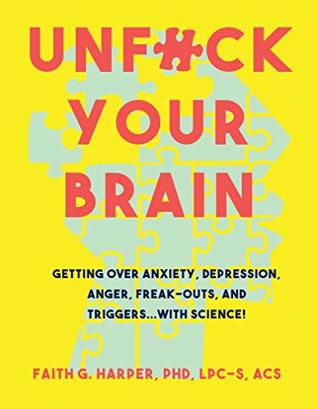More on this book
Community
Kindle Notes & Highlights
Read between
January 9 - January 19, 2024
Our brains respond not just to big, life altering traumatic events but also to day to day toxic relationships and interactions…the small ways people push our buttons, violate our boundaries, and disrespect our need for safety.
Jillian Werderitsch liked this
· Flag
Jillian Werderitsch
Please believe me when I say your experiences and reactions are valid and real and you are worthy of care and the opportunity to heal.
Jillian Werderitsch liked this
you attend to what you are feeling, you get over it way more quickly than if you avoid it.
Jillian Werderitsch liked this
If we think of trauma as emotions trapped in the body, this is how we metabolize them out.
Jillian Werderitsch liked this
Trying new soothing and coping techniques when you are feeling your best self will help you figure out which ones work for you.
Jillian Werderitsch liked this
Trying good coping skills out while you are NOT in freak-out mode will make it easier to access them when you are.
Jillian Werderitsch liked this
Grounding is one of the best ways to manage emotional pain, because it helps you remain in the present and remember that the pain itself is based in memory, and doesn’t have the power to hurt you in this moment.
Jillian Werderitsch liked this
Self-compassion means being as kind to yourself as you would your best friend. It is an intentional honoring of our imperfections as humans.
Jillian Werderitsch liked this
Treat yourself with kindness, understanding, and self-respect. Ask yourself, what would you say if this was happening to your best friend?
Jillian Werderitsch liked this
Put your hand over your heart and voice your experience of suffering. Remind yourself that suffering is part of humaning. Tell yourself that you are allowed kindness and forgiveness, and that starts as an inside job.
Jillian Werderitsch liked this
Even better is when I go hiking with my bestie. We get exercise and get to talk shit about everyone we know in the process.
Jillian Werderitsch liked this
Reminding yourself that you were doing the best you could with the information and skills you had at the time is hugely important. And remembering that the people who have hurt us are also broken and fucked up is almost as important.
Jillian Werderitsch liked this
Is this a person who challenges me to be my best self or are they here because I prefer them to being alone? Is being alone the same thing as being lonely? If not, how do I tell the difference and how do I manage them as different situations? Have I (or am I) communicating my boundaries effectively or am I expecting other people to figure out what I want? What are my boundaries? What are deal breakers? What is possibly negotiable? What is not an issue? Have these boundaries changed over time? Do I see them maybe changing in the future?
Jillian Werderitsch liked this
Having people who love us just because they DO is so, so, so important to getting better. Use them! If they ask to help, let them! It takes far more strength to accept help than to reject it. Be strong enough to allow others into your life.
In Japan, you are taught how to handle negative emotions. But in contrast, when Americans are asked to explain uncomfortable emotions, they really have a hard time doing so.
That means that in the US, anger is not only acceptable at some level, it’s often a GOOD thing. And our cultural rules and values about anger are getting us in some serious fucking trouble.
Our expectation is that anger requires retribution…and we see that our job, then, is to ensure a corrective response. From the time we are children, that anger is not only permissible, it’s a positive means of addressing situations.
When we lose our fucking minds on a regular basis, we are wiring our brains into a constantly heightened state that eventually fries our circuits (and pushes away everyone we love in the process).
To borrow a famous Buddhist expression, anger is like holding onto a hot coal and expecting the person we are angry at to get burned.
ANGER is triggered by Hurt Expectations not met Needs not met
So with that need comes the need for emotional safety. We need to feel secure and supported in our relationships with other people. We need to have a good idea of what to expect. We need to feel loved.
“Addiction is any repeated behavior, substance-related or not, in which a person feels compelled to persist, regardless of its negative impact on his life and the lives of others.


